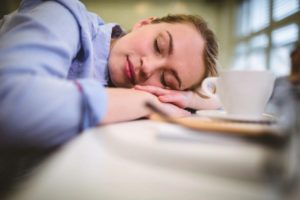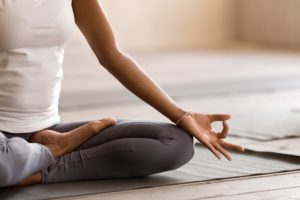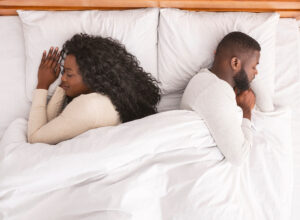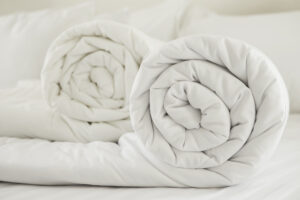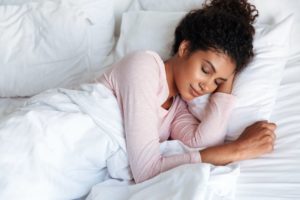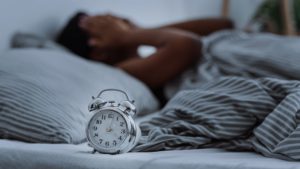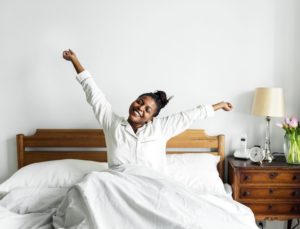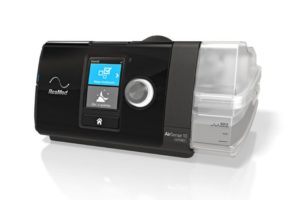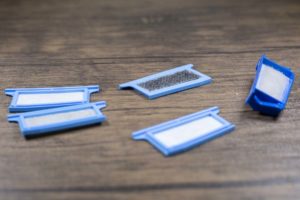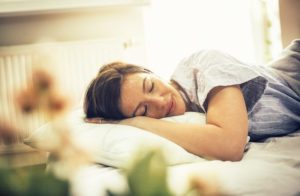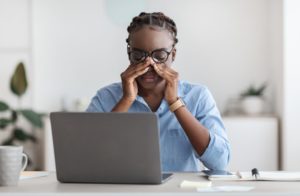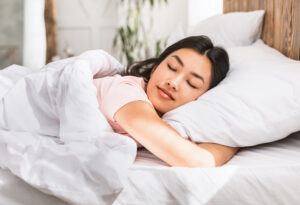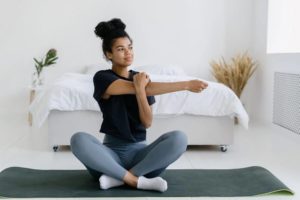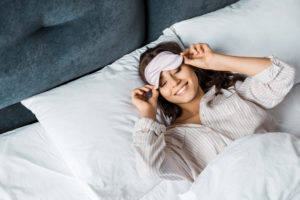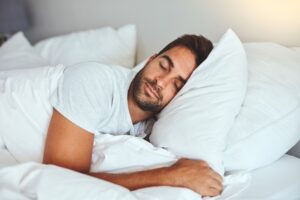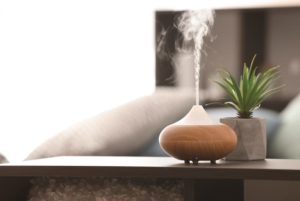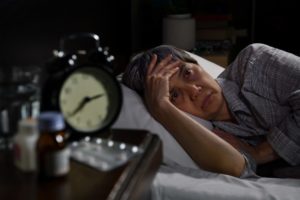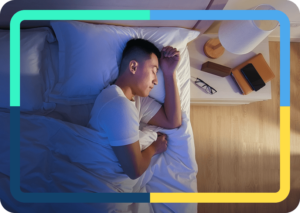Sleep Diary
Insufficient or interrupted sleep can have serious health consequences, but sleep problems are not always easy to identify. For that reason, a sleep diary is a valuable tool for tracking sleep, monitoring sleep habits, and documenting sleeping problems. People who experience sleep issues can use a sleep diary to develop a treatment plan with a doctor or sleep specialist.
What Is a Sleep Diary?
A sleep diary is a daily record of important sleep-related information. Although not all sleep diaries are identical, they commonly include details about:
- Bedtime
- Wake-up time
- How long it takes to fall asleep
- The number and duration of sleep interruptions
- The number and duration of daytime naps
- Perceived sleep quality
- Consumption of alcohol, caffeine, and tobacco
- Daily medications
- Daily exercise
Sleep diaries are also called sleep journals or sleep logs. These terms are typically used interchangeably to refer to a method of tracking sleep information, although some consider a sleep diary to be more detailed than a sleep log.
Why Use a Sleep Diary?
A sleep diary is an important tool for evaluating a person’s sleep. Doctors often request a sleep diary from the people they treat , but some people may use one on their own accord.
By keeping a record of sleep, the diary makes it possible to calculate total sleep time. A sleep record also helps people identify sleep disruptions and other factors that can influence sleep quality.
Identifying the habits that affect sleep can show patterns and help explain sleeping problems. For health care providers, the concrete entries in a sleep diary are often more reliable and usable than a general recollection about sleep habits.
A sleep diary may also be used in preparation for certain specialized sleep studies. A sleep diary can enhance the validity of sleep tests by showing that a person’s sleep is stable in the lead-up to the study.

How Do You Use a Sleep Diary?
Staying current and updating your sleep diary as you go helps avoid any gaps in your memory. For that reason, you should keep your sleep diary and a pen in an easily accessible place where you will be reminded to fill it out every day, such as your bedroom.
If you are filling out a sleep diary on doctor’s orders, make sure to use the form they provide and follow any accompanying instructions.
Doctors usually advise people to keep a sleep diary for at least one week . You may need to update your diary for two weeks or more, though, depending on how it is being used.
If you have decided to start a sleep diary on your own, you can decide for yourself how long to keep recording your sleep information and how often to review it.
Sleep Environment Checklist
An ideal sleep environment is an important part of a healthy bedtime routine. In the era of working from home, it can be especially beneficial to have a designated space for rest and personal time.
There are many factors that play into the design of an ideal bedroom, and some key ways to ensure the best night’s sleep possible.
- Maintain a cool bedroom temperature: Keep your thermostat set between 65 and 68 degrees Fahrenheit.
- Eliminate outside noise: Use earplugs or other noise-canceling devices to ensure your sleep environment is quiet and peaceful.
- Keep the room dark: Blackout curtains or a sleep mask can help block light during the early hours of the morning, or during the day if you are a shift worker.
- Tidy up your sleep space: Make a habit of cleaning your sheets and blankets on a regular basis, and ensure that your bed has been made before going to sleep.
- Try scent therapy: Use a diffuser with essential oils like lavender or bergamot to create a soothing aroma in your room.
Conducting a Sleep Hygiene Check-in With Your Sleep Diary
If you are keeping a sleep diary as a personal initiative, you can use it to benefit your health by conducting a check-in. As you review your sleep diary, a handful of questions can help you evaluate your sleep:
- Am I budgeting enough time for sleep?
- Is my sleep schedule consistent or full of fluctuations?
- Am I spending significant time lying in bed while struggling to fall asleep?
- Is my sleep disrupted during the night? If so, are there any patterns in the diary that may explain why?
- Is my sleep satisfying? Do I feel drowsy during the day?
- Am I taking naps that are too long or too late in the day that could be affecting my nighttime sleep?
- Is my use of alcohol, caffeine, or medications affecting my sleep time or sleep quality?
As you go through these questions, you can identify opportunities to apply practical tips to boost your sleep hygiene and contribute to your overall wellness.
Routines For Morning And Night
When it comes to sleep routines, it can be easy to focus solely on what happens in the evenings. However, the start of each day is just as important. The morning is how you introduce yourself to a new day, so getting off to a good start is a routine that takes consistency.
In the evenings, there are several routines that are often suggested, such as limiting the use of electronics in the hour before bed and avoiding heavy meals and liquids as you are nearing bedtime. There are also some morning practices that can help enhance the benefits of healthy nighttime habits, including:
- Waking up around the same time each day, even on weekends
- Giving your body a couple hours to fully wake up, rather than rushing to start on your daily obligations
- Getting outside for vitamin D and daylight exposure as often as you can during the day
- Skipping the late afternoon coffee and cutting off your caffeine intake by 2 p.m. each day
- Avoiding naps during the day, or limiting them to 20 minutes early in the afternoon
When Should You See a Doctor About Sleep?
doctor. Your doctor can review your sleep diary with you and determine whether any tests are necessary to diagnose and address your sleeping problems.
Regardless of whether you are keeping a sleep diary, talk with a doctor if you have any of the following symptoms:
- Significant difficulty either falling asleep or staying asleep through the night
- Impaired thinking, attention, mood, or physical performance during the day
- Excessive daytime sleepiness, especially if it feels like there are moments when you struggle to resist dozing off
- Very loud snoring or snoring that involves choking or gasping sounds
How Does a Sleep Diary Compare With Other Methods of Tracking Sleep?
Although sleep diaries are frequently used by health care providers, they are not the only method of tracking sleep.
Actigraphy
This test uses a special device worn on the wrist to monitor movement, including sleep. Actigraphy is often recommended when doctors are trying to identify a sleep problem because it offers more objective data than a sleep diary. That said, results from sleep logs and actigraphy are often similar, and sleep diaries are simpler and less expensive. In many situations, doctors may request that people use both at the same time to get a subjective and objective assessment of sleep.
Sleep Questionnaires
Questionnaires typically involve subjective evaluations of sleep without the detailed recordings made in a sleep diary. Though potentially useful, sleep questionnaires are typically less precise than a sleep log.
Sleep Studies
Also called polysomnography, this type of sleep study is conducted in a specialized lab and is necessary for the formal diagnosis of some sleep disorders. Because of the detail it provides, polysomnography is the gold standard for identifying many sleep disorders, but it may be expensive and requires spending at least one night in a sleep clinic.
Wearable Activity Trackers
These devices offer data about your sleep. Many of these use the same technology as actigraphy to calculate your daily movement and sleep time. Although these devices can be useful for conducting sleep hygiene check-ins, most have not been rigorously tested to ensure their accuracy.
Because of its simplicity, low cost, and broad insight into sleeping habits, the sleep diary remains an important part of recording and measuring sleep that may be used at a doctor’s request or on one’s own.

Still have questions? Ask our community!
Join our Sleep Care Community — a trusted hub of sleep health professionals, product specialists, and people just like you. Whether you need expert sleep advice for your insomnia or you’re searching for the perfect mattress, we’ve got you covered. Get personalized guidance from the experts who know sleep best.
References
7 Sources
-
Carney, C. E., Buysse, D. J., Ancoli-Israel, S., Edinger, J. D., Krystal, A. D., Lichstein, K. L., & Morin, C. M. (2012). The consensus sleep diary: Standardizing prospective sleep self-monitoring. Sleep, 35(2), 287–302.
https://pubmed.ncbi.nlm.nih.gov/22294820/ -
National Heart, Lung, and Blood Institute. (n.d.). Sleep deprivation and deficiency., Retrieved May 31, 2023, from
https://www.nhlbi.nih.gov/health/sleep-deprivation -
Khan, Z., & Trotti, L. M. (2015). Central disorders of hypersomnolence: Focus on the narcolepsies and idiopathic hypersomnia. Chest, 148(1), 262–273.
https://pubmed.ncbi.nlm.nih.gov/26149554/ -
Short, M. A., Arora, T., Gradisar, M., Taheri, S., & Carskadon, M. A. (2017). How many sleep diary entries are needed to reliably estimate adolescent sleep? Sleep, 40(3).
https://pubmed.ncbi.nlm.nih.gov/28199718/ -
Smith, M. T., McCrae, C. S., Cheung, J., Martin, J. L., Harrod, C. G., Heald, J. L., & Carden, K. A. (2018). Use of actigraphy for the evaluation of sleep disorders and circadian rhythm sleep-wake disorders: An American Academy of Sleep Medicine clinical practice guideline. Journal of Clinical Sleep Medicine, 14(7), 1231–1237.
https://pubmed.ncbi.nlm.nih.gov/29991437/ -
Lawrence, G., & Muza, R. (2018). Assessing the sleeping habits of patients in a sleep disorder centre: A review of sleep diary accuracy. Journal of Thoracic Disease, 10(Suppl 1), S177–S183.
https://pubmed.ncbi.nlm.nih.gov/29445542/ -
Mallinson, D. C., Kamenetsky, M. E., Hagen, E. W., & Peppard, P. E. (2019). Subjective sleep measurement: comparing sleep diary to questionnaire. Nature and science of sleep, 11, 197–206.
https://pubmed.ncbi.nlm.nih.gov/31686932/


